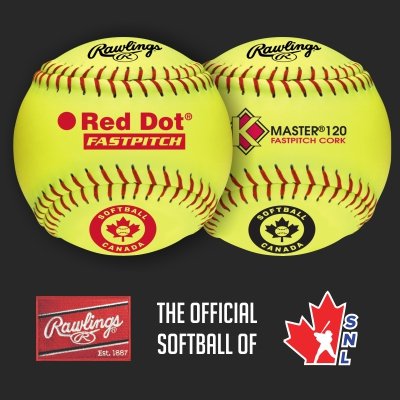The following is an article that appeared in the Decks Awash, Vol 06, No 04 June 1977 edition that featured Softball NL Hall-of-Famer Ross Crocker…
Article: Decks Awash, Vol 06, No 04 (June 1977)
A whack of trophies and mainland offers
Not that long ago, baseball ruled the roost when it came to bat and ball games in Newfoundland. Playing in St. John’s, Corner Brook, and a few other large centres, the handful of teams then active, struggled with cold evenings and early darkness as they tried to finish the games. Then, a few people started playing softball, and the kids who had grown up with baseball were greatly amused.
“That ball’s so big you have to hit it if you used a toothpick for a bat,” one baseballer observed. “You’d need a bushel basket for a glove,” another allowed. “I guess it’s O.K. for the girls” was the consensus.
Today, over twenty thousand Newfoundlanders are playing softball. If there has ever been a rags to riches story in sport development in Newfoundland, softball is it. In the past decade, the “big ball” games have penetrated to places where baseball was a game that had something to do with the picture cards that came in bubble gum. It’s a fair gamble to say that more Newfoundlanders play softball than ever watched baseball on the local scene.
As the sport has developed, so have the players. Among those whose skills have drawn attention at the national level is Heart’s Delight native Ross Crocker, whose pitching ability has bought him everything from a whack of trophies to mainland job offers.
“I’m originally from Heart’s Delight, and there wasn’t any such thing as softball there when I was growing up,” Ross recalled. “We didn’t even know what a softball was. There wasn’t a lot of sports played there then. We’d play ice hockey on the ponds in the winter, and beat around with a soccer ball during the summer, or play a game of “rounders”.
Ross got involved in softball when he moved to St. John’s, but still has connections with his birthplace. “I go back there when I get the chance,” Ross says, “and visit all the people. They are a great bunch, the whole shore.” During those visits, he sees a considerable difference from the days when a game of rounders was all that was on the go.
“The facilities are unbelievable now compared to what I remember. You take the Dildo-New Harbour area, for example. They have a new softball pitch, and there’s the new hockey arena in Whitbourne. In the Islington-Heart’s Delight area, they have a new softball and soccer field. Cavendish also has a softball field.”
When Ross came to St. John’s, he saw the local senior softball league playing at Bannerman Park, and he liked what he saw. He claims that he “just picked it up from there,” and recalls that his first playing involvement came while attending Grade Nine at McPherson Junior High School. He started pitching while playing there, and remembers practicing late at night at Bannerman Park with a few friends. “We’d go to Bannerman Park and play under the street light till nine and ten at night,” he said. “I suppose it was dedication. We’d be at it every day. Dedication and practice are the big things.”
Dedication and practice started to pay off for Ross during the 1969 Summer Games. Then playing senior ball at the age of 17, Ross got his first exposure to mainland ball, and he recalls that it helped him to play against players who were really good. Besides the opportunity to pick up tricks of the trade, it gave Ross and others like him a traget to aim at. “Even today, I love to sit down and watch a Newfoundland team beat a mainland team.” Ross says.
Having gotten his first taste of mainland competition in those Summer Games, Ross was to be no stranger to mainland competition.
“I played in a tournament every year since then,” Ross says, “and I’ve taken part in a few invitational tournaments too.”
During those mainland stints, Ross must have played some pretty impressive ball. His play prompted job offers from mainland firms, who were anxious to have him move to the mainland.
“I had offers the last two or Ross Crocker and The Caravan three years in a row,” Ross revealed, “but I wouldn’t really think about moving. I have a good job with Carling O’Keefe in St. John’s, and they treat me really well. If I were to move away and anything happened to me … if I broke an arm or a leg and couldn’t play, for example … I’d be finished. If I should get hurt or have a bad year down here, I don’t think I’d be fired from my job because of it. If I couldn’t keep producing on the mainland, I’d be gone.
“My job right now is working for Carling O’Keefe, and the softball is a part-time thing. Carling O’Keefe is really involved in softball in Newfoundland. In the next two weeks, for example, Duey Fitzgerald, Wayne Moores and I will be leaving and going to different centres around the island holding mini clinics. We’ll be doing a variety of things at the clinics … working with umpires, pitchers, catchers, and so forth. We aren’t experts, we’re just trying to help the guys improve themselves.”
Those clinics are helping fill what Ross sees as one of the key needs for softball at this time … development work with players in the minor leagues. Hampered by the relative lack of volunteers to teach younger players the game, there’s a danger that softball may follow the pattern shown by other sports in the past.
“This is the big thing with any sport. You have to have guys who are willing to put the time in helping upcoming players. I’ve gotten a tremendous lot out of softball, and I put a lot back into the game, and there are others who have done the same. But there are a lot of other guys who could put more back into the game than they do. Minor soft- ball needs this right now. There is a tendency with sports in Newfoundland for them to be big for 10 or 12 years, and then fade when another sport starts up. If we can keep minor softball going, and keep the coaching thing going, we can help keep softball going.
“Today, I think that a lot of guys want to get paid for doing that. It’s hard to get volunteers. Everything seems to get back to money these days, but we have got to get volunteers. We can do the job if we can just get everything together. Getting it all together is the big thing.”
Despite the fact that Ross has played on winning teams for five of the past six years, he still plays the game for fun. This coming season, he has left the championship team he played with last year “for no particular reason” to join a new entry in the league.
“None of our players know just what they can do in the senior league, so this season will be a challenge for us. Maybe I’ll stick with this team a couple of years, and if we can’t win, we’ll have a good time anyway. I’m just looking for a bit of fun the next few years, but that doesn’t mean that I’ll go out and throw the game away. If we win, we win, and if we lose, we lose, and that’s good enough.
Source: Memorial University of Newfoundland Digital Archives Initiative









